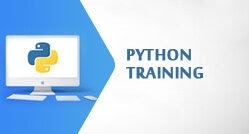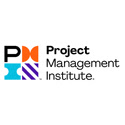PHP in 2024: Is It Still Relevant for Web Development?

In the ever-evolving landscape of web development, PHP has been a constant for decades. Originating in the mid-90s, PHP quickly became a staple for server-side scripting, powering a significant portion of the web. However, as newer technologies and programming languages emerge, the question arises: Is PHP still relevant for web development in 2024? This blog delves into the current state of PHP, examining its role in today’s web development sphere and how modern frameworks like Laravel and Symfony are ensuring its continued relevance.
The Current State of PHP in 2024
PHP remains one of the most widely used server-side languages, powering vast sections of the internet, including major platforms like WordPress, Facebook (via its Hack derivative), and Wikipedia. Its ease of use, extensive documentation, and community support have made it a go-to choice for many developers and companies.
Despite facing stiff competition from languages like JavaScript (Node.js), Python, and Ruby, PHP has not only endured but also evolved. The release of PHP 8 introduced features like Just-In-Time (JIT) compilation, attributes, and union types, significantly enhancing its performance and making it more robust for modern web development.
PHP's Role in Web Development Today
PHP’s role in web development today is multifaceted. It serves as the backbone for many content management systems (CMS) and e-commerce platforms, offering developers and content creators a flexible and powerful environment to build websites. Its widespread hosting support and community contributions in the form of libraries and tools make PHP a practical choice for both small projects and large-scale web applications.
Content Management Systems
PHP-driven CMSs like WordPress, Joomla, and Drupal dominate the market, enabling the creation of diverse websites with extensive customization options. The accessibility and extensibility of these platforms continue to make PHP a relevant choice for content-focused websites.
E-commerce Solutions
PHP is at the core of several leading e-commerce platforms, including Magento and WooCommerce. These solutions leverage PHP’s flexibility to offer robust features for online stores, from product management to payment processing.
Modern Frameworks: Laravel and Symfony
The continued relevance of PHP in the face of newer technologies is largely due to the evolution of frameworks like Laravel and Symfony. These frameworks have modernized PHP development, introducing elegant syntax, powerful features, and streamlined workflows that cater to contemporary web development needs.
Laravel: The PHP Framework for Web Artisans
Laravel has gained immense popularity for its ease of use, elegant syntax, and rich feature set. It provides a comprehensive ecosystem for developing web applications, including an ORM (Eloquent), a powerful templating engine (Blade), and robust security features. Laravel’s focus on developer experience and its vast community support have made it a top choice for PHP web development projects.
Symfony: A Flexible PHP Framework
Symfony is known for its modular component system, allowing developers to pick and choose the components they need for their project. This flexibility, combined with its performance and reusable PHP libraries (bundles), makes Symfony a preferred framework for complex and high-performance web applications.
Conclusion
In 2024, PHP continues to hold a significant place in web development. Its widespread use, coupled with the robust ecosystems of Laravel and Symfony, ensures that PHP remains adaptable and relevant even as new technologies emerge. The evolution of PHP and its frameworks underscores the language’s ability to reinvent itself, offering a mature, efficient, and highly capable platform for building a wide range of web applications. Whether you’re developing a small blog, a complex CMS, or an enterprise-level e-commerce solution, PHP, with its modern frameworks, remains a competitive and viable option in the current web development landscape.
In the ever-evolving landscape of web development, PHP has been a constant for decades. Originating in the mid-90s, PHP quickly became a staple for server-side scripting, powering a significant portion of the web. However, as newer technologies and programming languages emerge, the question arises: Is PHP still relevant for web development in 2024? This blog delves into the current state of PHP, examining its role in today’s web development sphere and how modern frameworks like Laravel and Symfony are ensuring its continued relevance.
The Current State of PHP in 2024
PHP remains one of the most widely used server-side languages, powering vast sections of the internet, including major platforms like WordPress, Facebook (via its Hack derivative), and Wikipedia. Its ease of use, extensive documentation, and community support have made it a go-to choice for many developers and companies.
Despite facing stiff competition from languages like JavaScript (Node.js), Python, and Ruby, PHP has not only endured but also evolved. The release of PHP 8 introduced features like Just-In-Time (JIT) compilation, attributes, and union types, significantly enhancing its performance and making it more robust for modern web development.
PHP's Role in Web Development Today
PHP’s role in web development today is multifaceted. It serves as the backbone for many content management systems (CMS) and e-commerce platforms, offering developers and content creators a flexible and powerful environment to build websites. Its widespread hosting support and community contributions in the form of libraries and tools make PHP a practical choice for both small projects and large-scale web applications.
Content Management Systems
PHP-driven CMSs like WordPress, Joomla, and Drupal dominate the market, enabling the creation of diverse websites with extensive customization options. The accessibility and extensibility of these platforms continue to make PHP a relevant choice for content-focused websites.
E-commerce Solutions
PHP is at the core of several leading e-commerce platforms, including Magento and WooCommerce. These solutions leverage PHP’s flexibility to offer robust features for online stores, from product management to payment processing.
Modern Frameworks: Laravel and Symfony
The continued relevance of PHP in the face of newer technologies is largely due to the evolution of frameworks like Laravel and Symfony. These frameworks have modernized PHP development, introducing elegant syntax, powerful features, and streamlined workflows that cater to contemporary web development needs.
Laravel: The PHP Framework for Web Artisans
Laravel has gained immense popularity for its ease of use, elegant syntax, and rich feature set. It provides a comprehensive ecosystem for developing web applications, including an ORM (Eloquent), a powerful templating engine (Blade), and robust security features. Laravel’s focus on developer experience and its vast community support have made it a top choice for PHP web development projects.
Symfony: A Flexible PHP Framework
Symfony is known for its modular component system, allowing developers to pick and choose the components they need for their project. This flexibility, combined with its performance and reusable PHP libraries (bundles), makes Symfony a preferred framework for complex and high-performance web applications.
Conclusion
In 2024, PHP continues to hold a significant place in web development. Its widespread use, coupled with the robust ecosystems of Laravel and Symfony, ensures that PHP remains adaptable and relevant even as new technologies emerge. The evolution of PHP and its frameworks underscores the language’s ability to reinvent itself, offering a mature, efficient, and highly capable platform for building a wide range of web applications. Whether you’re developing a small blog, a complex CMS, or an enterprise-level e-commerce solution, PHP, with its modern frameworks, remains a competitive and viable option in the current web development landscape.




























